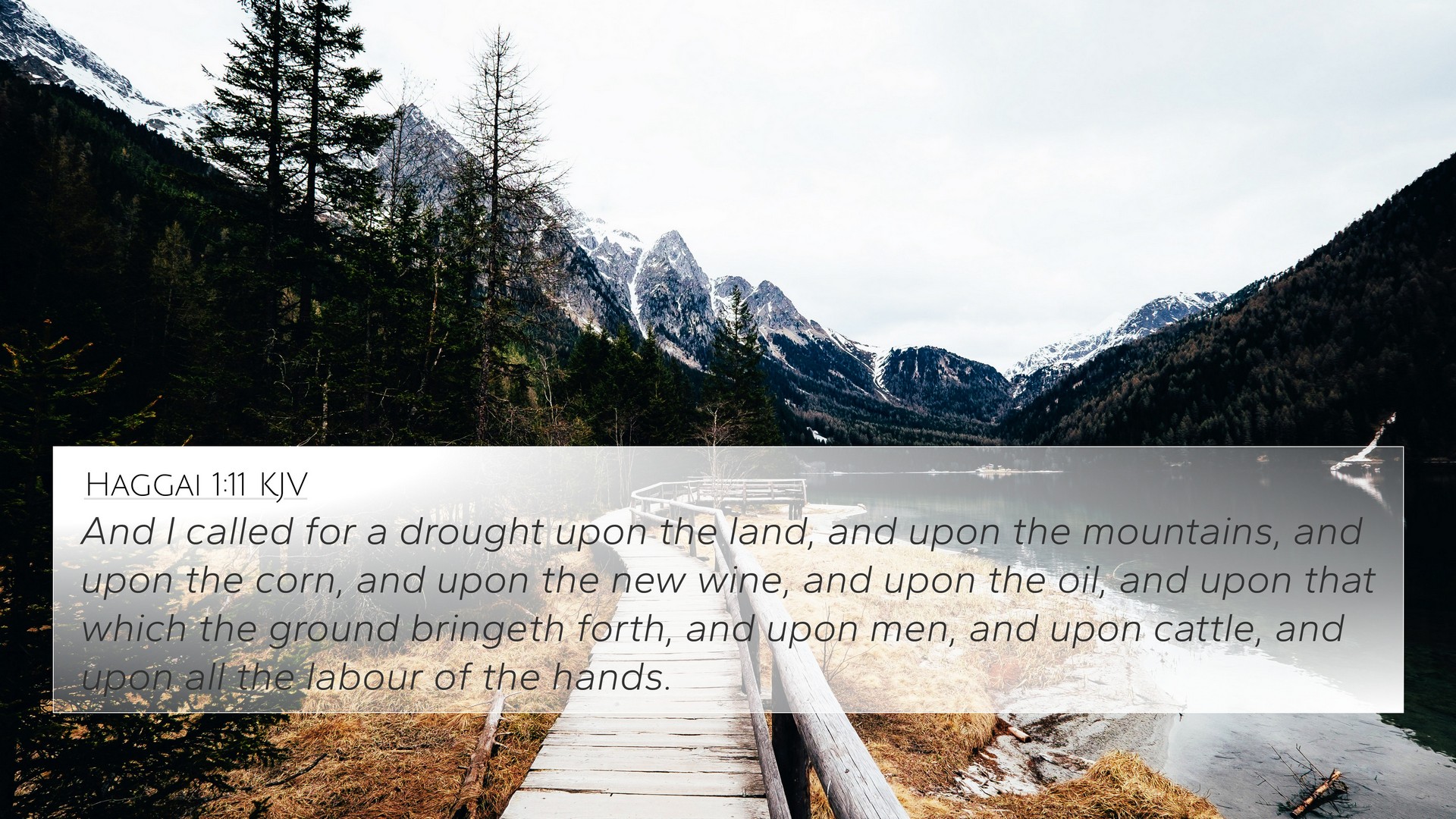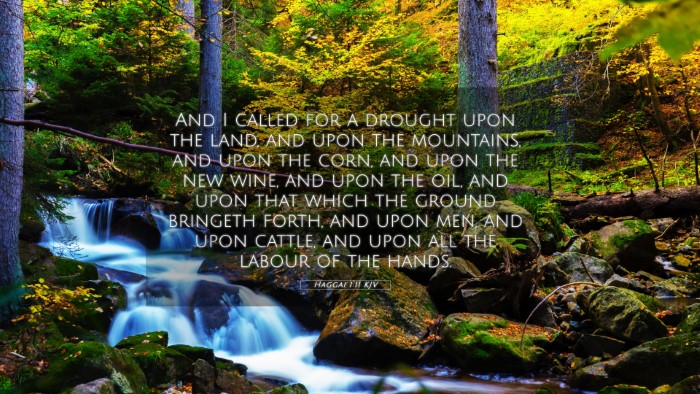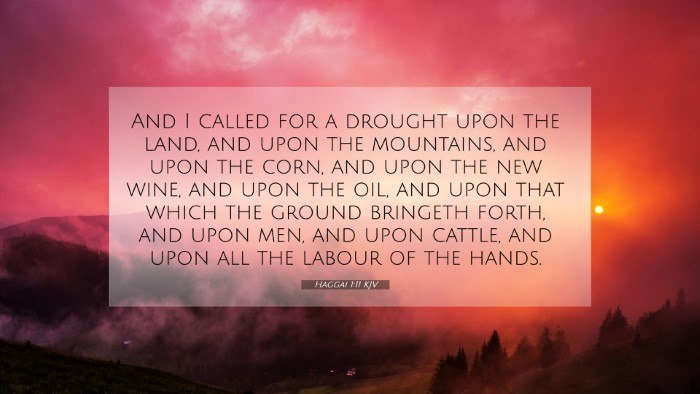Old Testament
Genesis Exodus Leviticus Numbers Deuteronomy Joshua Judges Ruth 1 Samuel 2 Samuel 1 Kings 2 Kings 1 Chronicles 2 Chronicles Ezra Nehemiah Esther Job Psalms Proverbs Ecclesiastes Song of Solomon Isaiah Jeremiah Lamentations Ezekiel Daniel Hosea Joel Amos Obadiah Jonah Micah Nahum Habakkuk Zephaniah Haggai Zechariah MalachiHaggai 1:11 Similar Verses
Haggai 1:11 Cross References
And I called for a drought upon the land, and upon the mountains, and upon the corn, and upon the new wine, and upon the oil, and upon that which the ground bringeth forth, and upon men, and upon cattle, and upon all the labour of the hands.
Uncover the Rich Themes and Topics of This Bible Verse
Listed below are the Bible themes associated with Haggai 1:11. We invite you to explore each theme to gain deeper insights into the Scriptures.
Haggai 1:11 Cross Reference Verses
This section features a detailed cross-reference designed to enrich your understanding of the Scriptures. Below, you will find carefully selected verses that echo the themes and teachings related to Haggai 1:11 KJV. Click on any image to explore detailed analyses of related Bible verses and uncover deeper theological insights.

Haggai 2:17 (KJV) »
I smote you with blasting and with mildew and with hail in all the labours of your hands; yet ye turned not to me, saith the LORD.
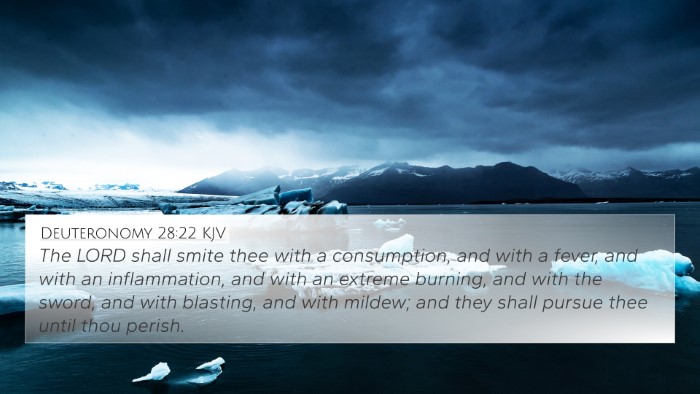
Deuteronomy 28:22 (KJV) »
The LORD shall smite thee with a consumption, and with a fever, and with an inflammation, and with an extreme burning, and with the sword, and with blasting, and with mildew; and they shall pursue thee until thou perish.
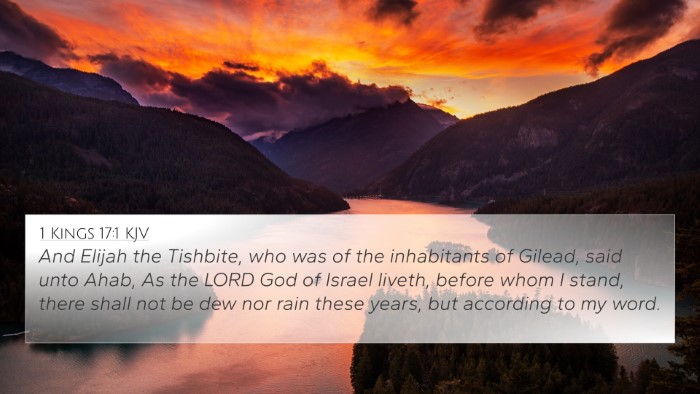
1 Kings 17:1 (KJV) »
And Elijah the Tishbite, who was of the inhabitants of Gilead, said unto Ahab, As the LORD God of Israel liveth, before whom I stand, there shall not be dew nor rain these years, but according to my word.
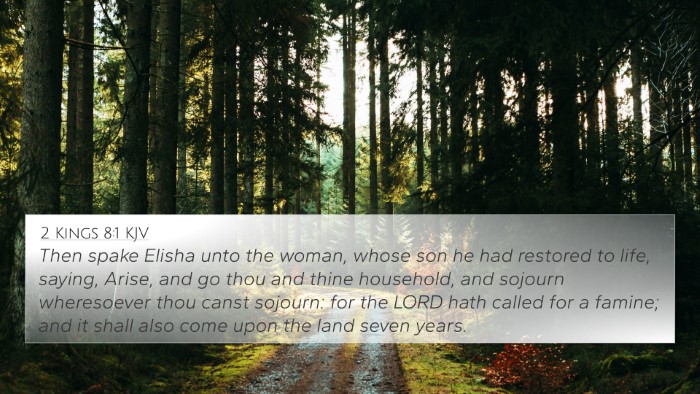
2 Kings 8:1 (KJV) »
Then spake Elisha unto the woman, whose son he had restored to life, saying, Arise, and go thou and thine household, and sojourn wheresoever thou canst sojourn: for the LORD hath called for a famine; and it shall also come upon the land seven years.

Job 34:29 (KJV) »
When he giveth quietness, who then can make trouble? and when he hideth his face, who then can behold him? whether it be done against a nation, or against a man only:
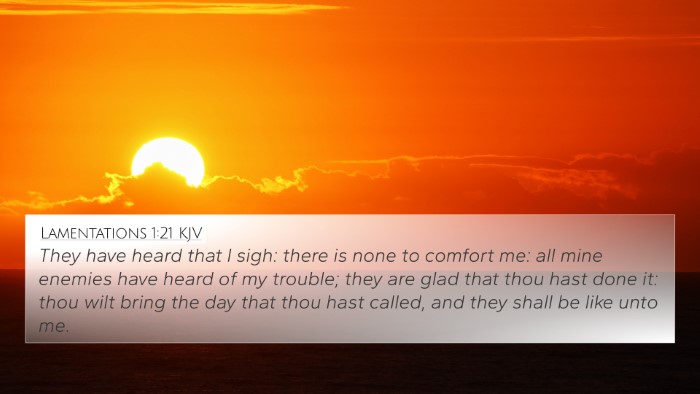
Lamentations 1:21 (KJV) »
They have heard that I sigh: there is none to comfort me: all mine enemies have heard of my trouble; they are glad that thou hast done it: thou wilt bring the day that thou hast called, and they shall be like unto me.
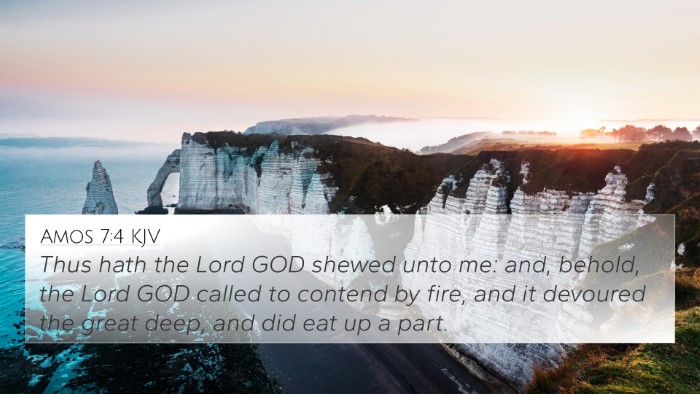
Amos 7:4 (KJV) »
Thus hath the Lord GOD shewed unto me: and, behold, the Lord GOD called to contend by fire, and it devoured the great deep, and did eat up a part.
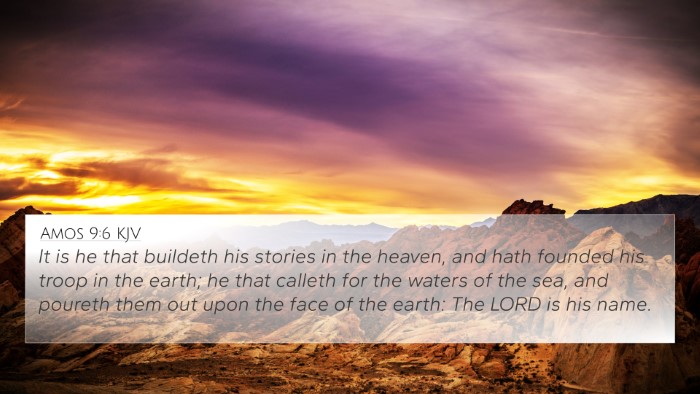
Amos 9:6 (KJV) »
It is he that buildeth his stories in the heaven, and hath founded his troop in the earth; he that calleth for the waters of the sea, and poureth them out upon the face of the earth: The LORD is his name.
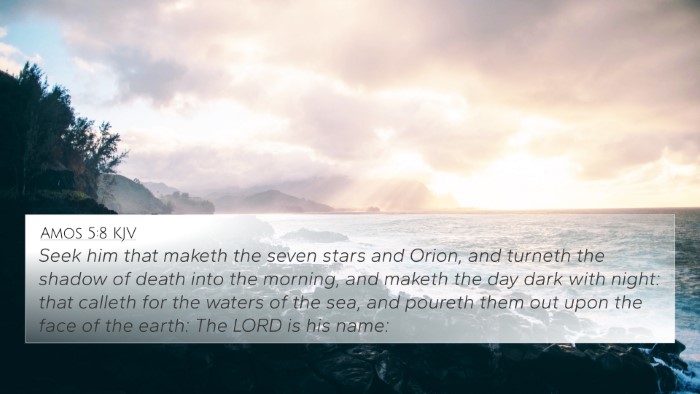
Amos 5:8 (KJV) »
Seek him that maketh the seven stars and Orion, and turneth the shadow of death into the morning, and maketh the day dark with night: that calleth for the waters of the sea, and poureth them out upon the face of the earth: The LORD is his name:
Haggai 1:11 Verse Analysis and Similar Verses
Understanding Haggai 1:11
Verse: "And I called for a drought upon the land, and upon the mountains, and upon the corn, and upon the new wine, and upon the oil, and upon that which the ground bringeth forth, and upon men, and upon cattle, and upon all the labour of the hands." - Haggai 1:11
Contextual Overview: The book of Haggai addresses the post-exilic community in Jerusalem, focusing on the need to rebuild the temple. Haggai, as a prophet, conveys God's messages to the people, urging them to consider their ways and the consequences of neglecting God’s house.
Meaning and Interpretation
The verse Haggai 1:11 serves as a stark reminder of God’s sovereignty over creation and His authority to call for judgment. Several key themes arise from this passage, drawing insights from various public domain commentaries:
- Divine Sovereignty: As noted by Matthew Henry, this verse emphasizes God's power over the natural resources of the earth. The drought is a direct consequence of the people's neglect of their spiritual responsibilities.
- Call to Reflection: Adam Clarke points out that the drought represents a divine call for introspection among the Israelites. God is showing them that their physical sufferings correlate with their spiritual disobedience.
- Consequences of Neglect: Albert Barnes emphasizes that the drought affected not only the produce but also the livestock and the works of the people's hands; this illustrates a holistic impact of neglecting God and His commands.
Key Themes in Haggai 1:11
The passage introduces several overarching themes that resonate throughout the Bible:
- God’s Judgment: This verse serves as a representation of God's judgment, similar to other biblical instances where disobedience led to divine retribution (see Deuteronomy 28:15-18).
- Spiritual Priorities: Haggai addresses the urgent need to prioritize spiritual commitments, paralleling Jesus' teachings on seeking first the Kingdom of God (Matthew 6:33).
- Impact of Sin: The social and agricultural ramifications of sin exhibit how personal actions can lead to communal suffering (compare with Romans 6:23).
Cross-References
This verse connects with several other scriptures, establishing a broader biblical narrative:
- Deuteronomy 28:15-18: Discusses the curses that befall Israel for disobedience.
- 1 Kings 17:1: The prophecy of Elijah about a drought serves as a significant parallel.
- Joel 1:10: Another passage concerning drought and its effects on the land.
- Matthew 6:33: Calling to prioritize God over material concerns.
- Romans 6:23: The wages of sin as a core concept that underlies the human condition.
- Malachi 3:10: God's promise of blessings in relation to obedience in stewardship.
- Isaiah 5:6: A metaphor of God allowing a vineyard (His people) to be unproductive due to negligence.
- James 4:17: Knowing the right thing to do and failing to do it is a sin.
- Hosea 4:1-3: God’s despair over His people's lack of knowledge which leads to societal decay.
- 2 Chronicles 7:14: A call for humility and prayer with a promise of healing if the people turn back to God.
Connecting Themes and Insights
This prophetic message should urge believers to reflect on their own spiritual priorities and the consequences of their actions. The impact of neglecting God’s commands resounds today, as seen throughout both the Old and New Testaments, providing meaningful connections between spiritual teaching and practical lived faith.
Conclusion
In summary, Haggai 1:11 is a poignant reminder of the interconnectedness between our spiritual state and the physical outcomes we witness in our lives. Through a comparative Bible verse analysis, we understand the depth of God’s warnings and the importance of Heeding His call.
